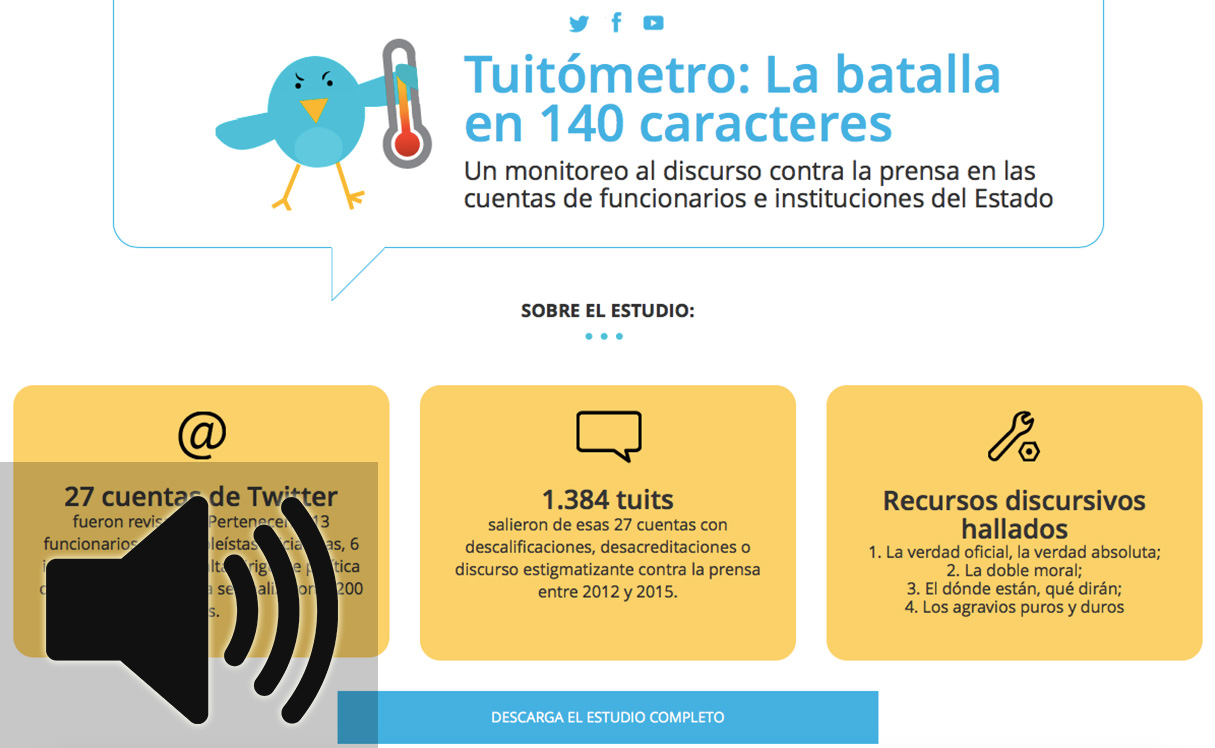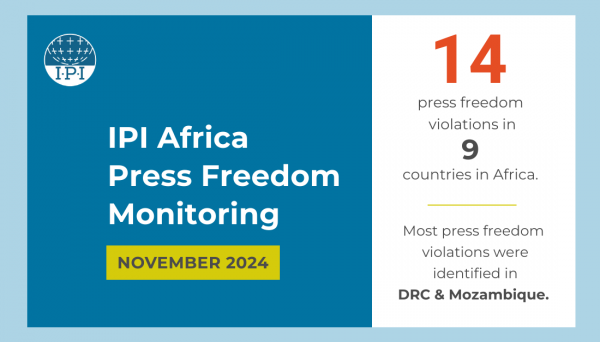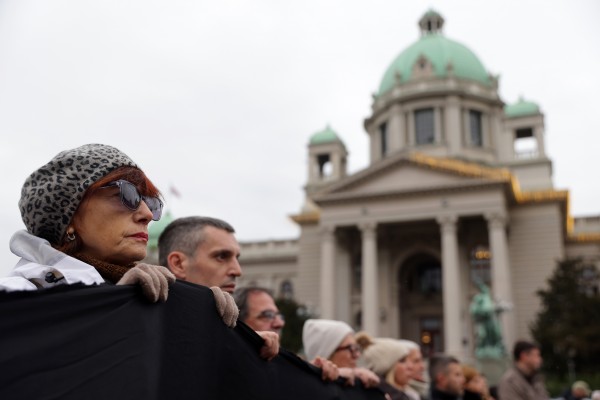Lea esta noticia en español.
Although there are still more than six months to go before the campaign to elect a new president in Ecuador begins, efforts to control political discourse in the country have long since begun.
According to a new study, part of this battle is being waged on social networks, where the current president, Rafael Correa, and like-minded government officials are seeking to discredit journalists, cartoonists and media outlets critical of their rule.
Published by the media-freedom watchdog Fundamedios, the study, “The Battle in 140 Characters”, analysed the content of approximately 1,384 tweets from a sample of 27 Twitter accounts belonging to public officials, lawmakers and high-ranking political leaders.
The tweets included in the study, says Fundamedios’s director, César Ricaurte, not only contain insults and smears, but also follow a concrete strategy.
(30″)
The study identified four discursive strategies employed by the government, the most common of which is that of “the official or absolute truth”. Indeed, 74 percent of the messages are said to refute news stories or attack media content in this vein. Other narrative strategies revealed by the study include accusing journalists of having a hidden agenda, or using insult and irony to ridicule the work of reporters.
(47″)
One of the objectives of the study, according to Ricaurte, is to highlight the use of Twitter accounts by governmental officials and the thin line separating personal messages from official ones – a line that frequently leads to confusion.
(35″)
The distinction between a personal message and an official or institutional message is an important nuance. Data from the study suggest that these blurred lines, on top of the very existence of inflammatory rhetoric by high-ranking politicians, can provide social media users who support the government with the justification to engage in massive campaigns of intimidation against journalists.
(25″)
Fundamedios’s study isn’t the first of its kind. In fact, the initiative is based on a similar study carried by the Press and Society Institute (IPYS) in Venezuela, which also looked at discursive strategies in social networks on the part of government officials.
Both studies reflect initial efforts in the region to use a methodological approach based on the social sciences to shed light on a phenomenon that until now has been mainly looked at through anecdotal evidence.
Studies such as these are a necessary step to understand the real impact of the harassment of journalists on social networks and the role that such networks play in protecting freedom of expression and information not only in Ecuador, but at the global level as well.



